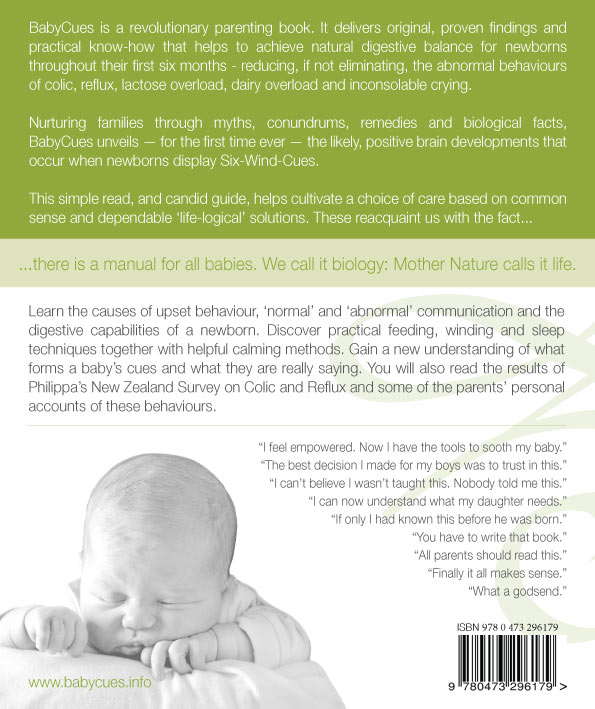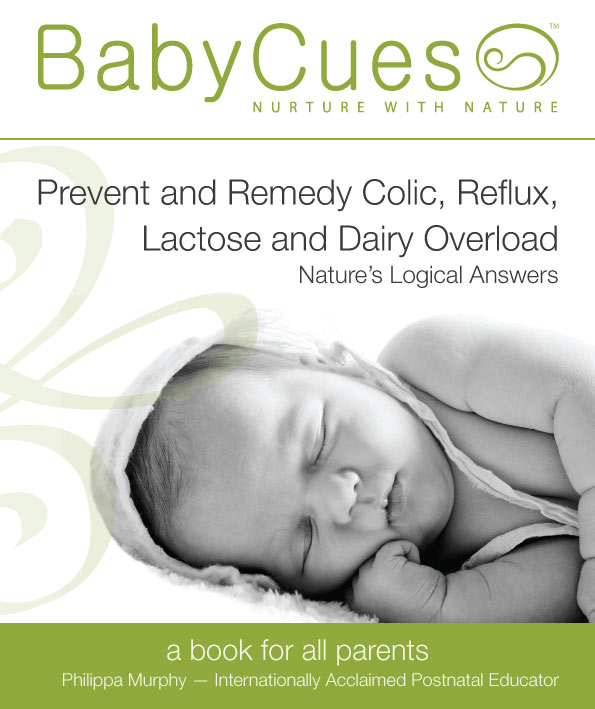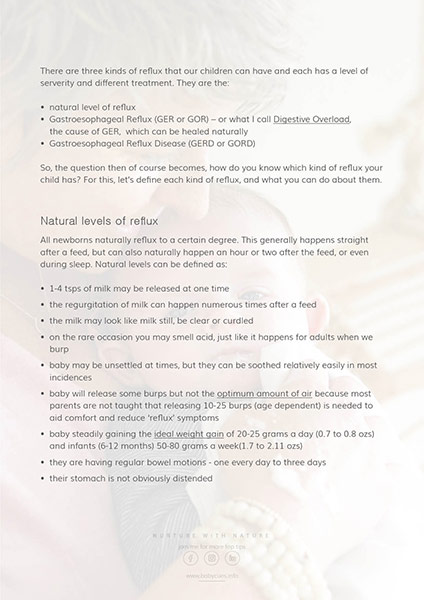Willby's - A Withdrawal Warning

This is an important notice for all parents that have been using Willby's Colic Mix, and now find themselves having to stop Willby's because the pharmacy has thankfully stopped selling this product.
Why do I say thankfully?
Well, because this mix is gravely concerning for our newborns and infants, despite Willby's projecting that their product only holds natural ingredients and is preservative free. So what are these concerns? And what symptoms do you need to be aware of through the withdrawal.
Willby's concerning ingredients
As per the Willbys website the three main ingredients listed are:
- Sodium Citrate
- Belladonna
- Dill Oil
While we will look at the first two of these in detail soon, and I’ll list their withdrawal symptoms, I’d like to relay a previous conversation that I have had with Willby's when, as a health professional, I asked them whether there were any other ingredients in there mix because I had a little boy with allergies. There reply was that the base of the mix is glycerin derived from soy. Anyone that knows the research about soy, knows that this is not a healthy ingredient for our newborn and infants as it has grave effects on hormones, while blocking the absorption of zinc, magnesium, iron and calcium. Interestingly enough, when I had the mother ring to ask, they said the only ingredients in the mix was what was on the website – and yet glycerin/soy is not listed.
Sodium Citrate
Sodium citrate is the sodium salt of citric acid. It is white, crystalline powder or white, granular crystals. Citrate neutralizes acid in the stomach and urine, raising the pH. 1 This may sound like a good thing if your baby is suffering with reflux or silent reflux (or what I call Digestive Overload the real cause of these symptoms that can be healed naturally), however, acid helps a newborn to break down, digest, and absorb nutrients. It also eliminates bacteria and viruses in the stomach, protecting their bodies from infection. So, when acid is reduced it can have a profound impact on the absorption and digesting of nutrients, especially impacting the duodenum2, whilst opening the child up for the growth of bacteria, which can produce a lot of bloating and gas. This can also result in pneumonia risk and C. difficile infections – and please don’t think that this won’t happen to your baby, because I have sadly seen this happen in my clinical practice. Not necessarily from Willby's, but from acid inhibitors (Proton Pump Inhibitors) which also stop acid production.
Get the help you need
Hailed as a game changer, life-saver and a must read from parents and postnatal professionals, this self-help book truly has the answers that NATURALLY prevent and heal the symptoms of colic, reflux, silent reflux, the witching hour and lactose and dairy overload - aka Digestive Overload, the true cause of these symptoms.


- nurture your child's digestive system
- Burp your baby to comfort
- Understand their Six-Wind-Cues
- Calm baby with techniques that work


LEARN HOW TO
- nurture your child's digestive system
- Burp your baby to comfort
- Understand their Six-Wind-Cues
- Calm baby with techniques that work
Belladonna
Belladonna, also known as Atropa Belladonna or deadly nightshade, is a perennial herbaceous plant in the nightshade family Solanaceae, is a poisonous plant and belladonna intoxication from accidental ingestion may result in a severe anticholinergic syndrome, which is associated with both central and peripheral manifestations3. Its roots, leaves and fruits contain Hyoscyamine, Scopolamine, and mostly, Atropine.4
These alkaloids are naturally-occurring muscarinic antagonists.4 What does that mean? Muscarinic agonists regulate numerous fundamental functions of the central and peripheral nervous system which can cause cardiac slowing, contraction of smooth muscles (intestinal tract, bronchioles, detrusor muscle, urethra, and iris muscle), and increased secretion from exocrine glandular tissues (salivary, gastric acid, and airway mucosal gland).5
Antropine
Side effects of antimuscarinics include constipation, transient bradycardia (followed by tachycardia, palpitations, and arrhythmias), reduced bronchial secretions, urinary urgency and retention, dilation of the pupils with loss of accommodation, photophobia, dry mouth, flushing, and dryness of the skin. Side effects that occur occasionally include confusion (particularly in the elderly), nausea, vomiting, and giddiness.6
Scopolamine
Scopolamine is a dangerous drug because it produces a zombie-like effect in users, causing docility, lack of free will, memory loss, and unpleasant hallucinations, making it a common date rape drug.7
The FDA state this about Scopolamine: Safety and effectiveness in pediatric patients have not been established. Pediatric patients are particularly susceptible to the adverse reactions of scopolamine; including mydriasis, hallucinations, amblyopia and drug withdrawal syndrome – which I outline the symptoms of below for you.
The more common side effects of scopolamine are: agitation, bigger, dilated, or enlarged pupils, blurred vision or other changes in vision, confusion, and increased sensitivity of the eyes to light. I also feel it’s important to share here the symptoms of scopolamine overdose, because nowhere on the Willby's website, or on the bottles that I have seen, do they state how much Belladonna is in their mixture. I also recently heard that they have been selling a “double dose’ version of Willby's, so it’s highly possible that overdose scenarios are happening. These include additional symptoms of anxiety, change in consciousness, decrease in frequency/volume of urination, painful urination, deep or fast breathing with dizziness, dry mouth, flushed skin, fast, pounding, or irregular heartbeat or pulse, headache, irritability, numbness of the feet, hands, and around the mouth, pounding in the ears, seizures, shaking, sleepiness or trouble with sleep, unusual drowsiness, dullness, tiredness, weakness, or feeling of sluggishness.8
Hyoscyamine
Hyoscyamine is not FDA approved, and so it has not official indications.9 There is however, a Severe precaution: Infants and young children are especially susceptible to the toxic effects of anticholinergic agents.10
The common side effects of hyoscyajmine are: drowsiness, dizziness or light-headedness, headache, blurred vision, flushing (feeling of warmth), dry mouth, constipation, difficulty urinating, increased sensitivity to light. Serious side effects that you must call your doctor immediately for are: diarrhoea, skin rash, eye pain, fast or irregular heartbeat.
So, with all of these side effects known, I think it would be fair to say that most parents would reconsider using Willby's, if they do try and make this available again. Also, please note that it seems to be common practice for the pharmacy to increase the dose of their mixture when parents return to them because their child begins to exhibit the side effects of the Willby's mixture, like irritability, crying, unsettled sleep etc, thinking their child is experiencing a return of the colic/reflux symptoms.
The three types of reflux
Unravel the confusion around reflux. Define your child's symptoms and learn the overview of treatment that could be best for them.


- Define reflux
- Symptoms for each kind of reflux
- Overview of treatment


WHAT'S INSIDE
- Define reflux
- Symptoms for each kind of reflux
- Overview of treatment
Questionable statements on Willby's website
“Belladonna Tincture, versus Belladonna, is made from the leaves of the Belladonna plant and not the berries, which means the active ingredient is very mild in concentration, and the exact concentration of the active is known.”11
All parts of the plant contain the alkaloids atropine, hyoscine, and scopolamine, making it poisonous and hallucinogenic (Zárate, el Jaber-Vazdekis, Medina, & Ravelo, 2006). The highest concentration of alkaloids is found in mature fruits and green leaves.12
“We carry out chemical analysis on our product to ensure the concentration of a batch is consistent and correct. If belladonna is used correctly in appropriate doses set by pharmacists, it is a safe and effective treatment for many conditions.”11
Yet nowhere on the bottles that I have seen, or on the website do they state the concentration or quantity of Belladonna in use for the customer.
Our mix uses an extremely conservative dose, tailored to your baby’s age and weight, overseen by a pharmacist and naturopath. In over 20 years of making the mix, there has never been one case of negative side-effects from our mix.”11
Never – really Willby’s? Well, I beg to differ and given the procedures undertaken by the Theraputic Goods Act (TGA), you would have known that in 2013 there was a case of cardiac arrest and ventricular fibrillation documented against your product. The TGA listed the ingredient of Sodium Citrate as the suspect for this,13 and there are other known cases of this happening with Sodium Citrate. However, Belladonna can also cause ventricular fibrillation and cardiac arrest.14
I myself, along with two other families that I helped take their baby through the withdrawal I know have submitted documentation to the TGA on the side effects that we have seen through the withdrawal of your product, which are not pretty. And even your website mentions a medical professional made a complaint after they, “felt that we could have done more to disclose the ingredients within the products.” I couldn't agree more!
Possible symptoms of withdrawal
Withdrawal symptoms for Scopolamine (please note that these are taken from the withdrawal symptoms of scopolamine patches because of the lack of withdrawal symptoms listed in the paediatric population.)
• nausea, vomiting
• headache, dizziness
• blurred vision, poor balance and coordination, drop in blood pressure
• tingling or prickling sensations in the hands and feet
• dysphoria (generalized dissatisfaction with life)
Withdrawal symptoms from hyoscyamine
• anxiety, muscle twitching, shakiness, dizziness, worsening weakness,
• nausea, vomiting
• fast or irregular heartbeat
• increased sensitivity to light
• diarrhoea
General drug withdrawal syndrome
• twitching in the muscles
• excessive hunger, or loss of appetite
• fatigue, lethargy, night sweats, restlessness, shakiness, clammy skin, craving, feeling cold, or sweating
• gagging, nausea, vomiting, flatulence, or stomach cramps
• agitation, crying, excitability, irritability, or self-harm
• delirium, depression, hallucination, paranoia, or severe anxiety
• insomnia, nightmares, sleepiness, or sleeping difficulty
• disorientation, mental confusion, racing thoughts, hallucinations, or slowness in activity
• boredom, feeling detached from self, loss of interest or pleasure in activities, or nervousness
• congestion or runny nose
• dilated pupil or watery eyes
• hyperalgesia, seizure, slurred speech, teeth chattering, tingling feet, trembling, tremor, or weakness
Additional side effects for our young
• screaming
• temperature spikes
• reduction in wet nappies
• constipation
• hyperactivity
Summary
Now, while of course I don’t want to worry any parents, I do want to make it clear that these symptoms can happen. Particularly if your child has been on Willby's for longer than a week (Scopolamine can show common symptoms after 24 hours), or on a double dose or high dose. So, should you witness any of these, please consult with your medical health professional immediately.
And if you would like some advice on how to slowly wean your child off Willby's, dependent on their personal situation, whilst also healing the causes that had you understandably looking for help for them in the first place, then I am available for consultations, and have supported quite a few families through this already. So, I know what to expect, and how you can help your baby or infant.
I’d like to finish by saying, it’s a sad place we live in when something is projected as “natural” and "safe" in order to make a profit, whilst leaving unsuspecting, loving parents in this position. My heart goes out to all of you that now find yourselves, and your baby in this position. It’s diabolical and in my opinion, there is no excuse for such conduct!
1. Drug bank
2. Harvard Health Publishing - Medical school
3. Berdai MA, Labib S, Chetouani K, Harandou M: Atropa belladonna intoxication: a case report. Pan Afr Med J. 2012;11:72. Epub 2012 Apr 17. [Article]
4. Drug bank
5. Kruse AC, Kobilka BK, Gautam D, Sexton PM, Christopoulos A, Wess J. Muscarinic acetylcholine receptors: novel opportunities for drug development. Nat Rev Drug Discov. 2014 Jul;13(7):549-60. doi: 10.1038/nrd4295. Epub 2014 Jun 6. PMID: 24903776; PMCID: PMC5818261.
6. Medsafe
7. Scopolamine Withdrawal symptoms
8. Mayo Clinic
9. Drugbank
10. Physicians’ Desk Reference
11. Willby’s Website
12. Neuroscience – atropa-belladonna
13 Theraputic Goods Act
14. Berdai MA, Labib S, Chetouani K, Harandou M. Atropa belladonna intoxication: a case report. Pan Afr Med J. 2012;11:72. Epub 2012 Apr 17. PMID: 22655106; PMCID:


 Submitting data
Submitting data